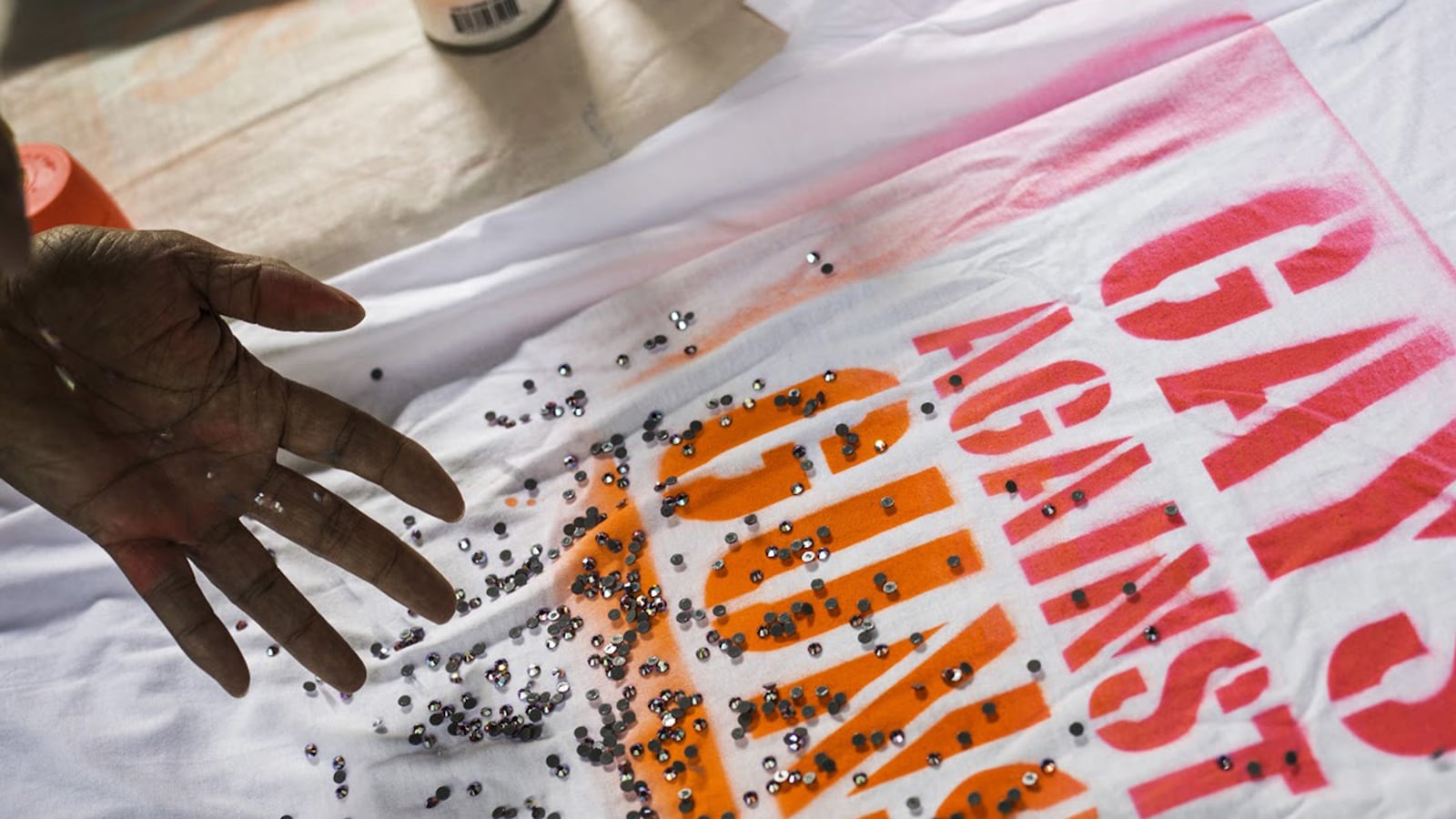On the evening of June 17, 2016, a group of a hundred concerned folks gathered at the Lesbian, Gay, Bisexual, and Transgender Community Center in Manhattan. Only five days earlier, Omar Mateen had murdered 49 people and wounded 53 others inside Pulse Nightclub in Orlando, Florida. There was a range of dark emotions in the air: sadness and pain, indignation and fear, and anger.
In the cramped room, Kevin Hertzog, John Grauwiler, Rob Khol, and Brian Worth sat at a folding table facing a pressing question: Is there a way to respond effectively to the deadliest mass shooting and hate crime in the history of the United States?
With New York City’s LGBT Pride parade only a week away, the group decided to participate in the annual march to honor the victims of the tragedy and comfort affected communities by reminding the nation that violence and policies that promote it are intolerable.

They had to act fast, secure a spot in the march, create signs, and perhaps wear similar clothing. That’s when Mari Gustafson, a graphic apparel designer in attendance, offered to sketch artwork, find a way to produce stencils, arm participants with cans of spray paint, and alter their T-shirts and tank tops so that marchers would be able to communicate a clear message: Gays are against guns.
The next day, Gustafson designed punk culture-inspired graphics. Ed Roth, the owner of a company that produces laser-cut stencils, heard about the project on Facebook and donated his products. Managers of Lucky, a bar in the East Village, offered their outdoor space as a venue to host a spray-painting party.
The following Sunday, June 26, Gays Against Guns (GAG) made its debut on Fifth Avenue. Surrounded by enthusiastic cheers, the group staged “die-ins,” a form of protest in which demonstrators fall to the ground to represent the victims of gun violence.
From that day, Gays Against Guns became an inclusive movement with hundreds of members and 12 U.S. chapters in other cities.

Their aim is to create cultural change in American attitudes toward guns and encourage meaningful reforms that will guarantee the safety of all individuals, particularly those belonging to vulnerable communities.
In the past four months, GAG activists performed several acts of civil disobedience. Demonstrators targeted the headquarters of BlackRock, one of the largest corporate shareholders of gun companies’ stock; the Reebok-sponsored CrossFit Games, which awarded their top athletes with Glock handguns; and the firearms manufacturer Sig Sauer in New Hampshire (a Sig Sauer semi-automatic rifle and a Glock semi-automatic pistol were the weapons used by the shooter at Pulse). During these protests, GAG activists distributed fact sheets containing information about gun deaths in America and occupied designated locations by chanting and holding “die-ins.” Others participated as “human beings”: haunting white-veiled walkers who held posters with photos and names of victims.

It’s natural to note early similarities between GAG and the AIDS Coalition to Unleash Power (ACT UP), the queer-led advocacy group that reshaped the history of the HIV/AIDS epidemic in the U.S. by raising awareness through vehement protests that ultimately led to life-saving structural changes.
Both movements arose out of frustration and grief in a tiny room of the LGBT Center in New York City. Like ACT UP, GAG’s initiatives focus on corporations and elected officials unable or unwilling to ensure that all citizens are safe from harm. Lastly, both groups rely on direct action as a way to address two public health crises that put all Americans at risk.

GAG-New York now meets every other Thursday at the LGBT Center to plan future demonstrations. Many members regularly gather to create T-shirts and other accessories that are sold online to support the group’s activities. Items are spray-painted by hand, and, therefore, each article is unique.
Their design evokes a mission, a purpose, and a promise.
Back in 1987, ACT UP advocates recognized that the HIV/AIDS epidemic would become a threat to the general population. Today, in a similar fashion, GAG activists remind us that gun violence harms people indiscriminately, from LGBT young adults in an Orlando nightclub to members of the Emanuel African Methodist Episcopal Church in Charleston, from students to moviegoers, from our soldiers to our children.
For more info, please visit the GAG Website and GAG Shopping site.





